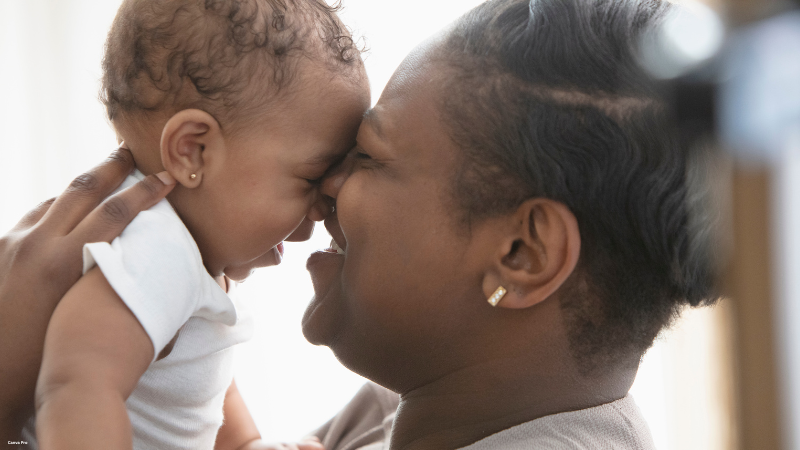Affectionate Mother Care: How Early Nurturing Shapes Openness, Conscientiousness, Agreeableness, and Extraversion, Influencing Lifelong Success, Emotional Stability, and Reducing Risks of Personality Disorders in Adulthood.
Affectionate Mother Care plays a lasting role in shaping children’s Big Five personality traits, according to a study by the American Psychological Association. These traits may play a role in shaping success in education, finances, and overall well-being. The study suggests that a mother’s supportive behavior could help build important traits like openness, conscientiousness, and agreeableness. It may also affect traits such as extraversion and levels of neuroticism.
“Our work on personality shows the Big Five traits play a big role in shaping life outcomes like success in school, careers, health, and even happiness,” said Jasmin Wertz PhD, who leads the study and teaches psychology at the University of Edinburgh. She added, “We found that creating supportive parenting during early childhood could have a small but lasting effect on these key personality traits. This approach might help lessen the impact of tough childhood experiences and lower the chances of developing personality disorders in the future.”

Wertz and her team studied how a mother’s sensitivity when her child is between 5 and 10 years old is connected to the Big Five personality traits observed at age 18. Experts in personality psychology see the Big Five as the main building blocks of human personality. These include extraversion, agreeableness, openness to experience, conscientiousness, and neuroticism, also known as emotional stability. They also investigated whether a nurturing mother has an impact on an infant’s temperament, which may suggest how their personality might develop later.
Their findings were published in the journal American Psychologist.
The research team studied data from 2,232 British identical twins, where 51.1% were girls. They followed these twins from birth until they turned 18 as part of the Environmental Risk Longitudinal Twins Study. By focusing on identical twins raised in the same home, scientists can observe the combined effects of both genetics and environment. During the research, they visited the twins’ homes and talked with their mothers to learn more about each child. Experts then reviewed the mothers’ responses to assess the warmth and affection they showed. They also looked at things like how stressed the mothers were and their personality traits, such as being outgoing or agreeable.
Also read: Teens’ Emotional Journey: Building Skills for Life Success
Twins who got more warmth from their mothers as kids showed greater openness, conscientiousness, and agreeableness when they became young adults. According to Wertz, this shows that kind and caring behavior from moms has an influence on key personality traits tied to future success. This may also affect how traits are passed down to the next generation. The research also revealed that mom’s nurturing shaped the growth of extraversion in children.
The researchers argue that even tiny shifts in personality can bring big benefits to society in the long run. They point out how encouraging conscientiousness plays a key role since it has a strong link to success in school, work, and health. The study also underlines how crucial emotional regulation is in shaping personality because it connects to traits like emotional stability and neuroticism. Grasping these links could aid efforts to create ways to lower the chances of developing personality disorders as people age.
Also read: Developmental Milestones: Nurturing Growth in Ages 3-5
The study found no lasting links between affectionate mother care and emotional stability also known as neuroticism. This suggests that things like genetics social support, life experiences, or later interventions could play a bigger role in shaping these traits in adults. It highlights how complicated personality stability is and shows how many factors can shape it over time. This includes how a baby’s temperament might help shape their personality as they grow.
The research highlights the need to examine genetic and environmental influences, like childhood adversity when creating programs to build positive personality traits, Wertz explained. “This study shows strong evidence that parenting programs can have a significant effect on key areas of personality growth,” she said. “But it also stresses the importance of understanding how different elements such as genetics, parenting styles, and life experiences, combine to shape who we are when it comes to traits like being outgoing and cooperative.”
Wertz highlights that these results provide useful knowledge for those in education, family services, and mental health fields. Conscientiousness connects to success in school and work so using strategies to encourage caring parenting might boost learning achievements mental health, and social skills across society. These strategies could also help children become more outgoing and cooperative.
Also read: Toddler 2-3 years: Nurturing Growth, Safety & Well-being
She said, “We have many proven ways to help parents succeed. These include policies aimed at improving a family’s financial security, making mental health care more accessible for parents facing issues like depression, and creating special programs to build stronger parent-child connections and offer social support.” These methods become important in situations where young children face stress or trauma in life. Such experiences can have a big effect on how their personality develops and may even lead to personality disorders.
The study highlights opportunities to develop targeted parental training programs to address gaps in personality development. Wertz explained that by emphasizing parenting techniques that encourage good traits in early childhood, society might reduce the usual differences in life outcomes linked to family background financial status, or other external factors. This strategy can help build agreeableness and conscientiousness, traits associated with better life outcomes.
This study adds a lot to what we know about how early experiences in life and how affectionate mother care can mold personality traits. It highlights the need to help parents create caring environments because this can affect kids’ success and happiness later on. Personality psychology is changing over time, and research like this helps us learn more about how genetics, surroundings, and the growth of key traits like being outgoing or anxious all connect.
Also read: Infant Developmental Milestones: What to Expect Year One
The findings bring up interesting questions about how a parent’s personality shapes their child’s temperament and later personality growth. Researchers might study how a mother’s personality traits work together with her parenting style to affect her child’s Big Five personality traits. This research could help understand how personality traits are passed down through generations. It could also involve looking into the ways that a parent’s extraversion or agreeableness has an effect on how these traits grow in their kids.
In conclusion, this study shows how much affectionate mother care affects the growth of the Big Five personality traits. Traits like conscientiousness, agreeableness, and openness to experience are shaped by this nurturing. It also gives new insights about how extraversion and neuroticism form over time. Learning these links can help us create better ways to encourage healthy personality growth and reduce harm from tough childhood experiences. This could lead to improved outcomes for both individuals and society. The research not deepens our understanding of personality psychology but also lays the groundwork to explore how infant temperament shapes adult traits like conscientiousness, extraversion, and agreeableness in the future.
Source:
Jasmin Wertz (April 16, 2025). Nurturing now, thriving later: The lasting power of affectionate mothering. American Psychological Association. https://www.apa.org/news/press/releases/2025/04/power-affectionate-mothering
#affectionate_mother_care_and_child_personality_development, #impact_of_maternal_warmth_on_Big_Five_traits, #how_mother’s_nurturing_affects_child_success, #role_of_parenting_in_shaping_conscientiousness, #maternal_sensitivity_and_personality_growth_in_children, #effects_of_early_childhood_care_on_personality_traits, #supportive_parenting_and_emotional_stability_in_youth, #mother’s_affection_influence_on_extraversion_and_agreeableness, #parenting_programs_to_improve_child_personality_outcomes, #reducing_personality_disorders_through_maternal_care, #nurturing_parenting_and_lifelong_well-being, #maternal_care_and_child_temperament_development, #how_mother’s_behavior_shapes_child’s_future_success
